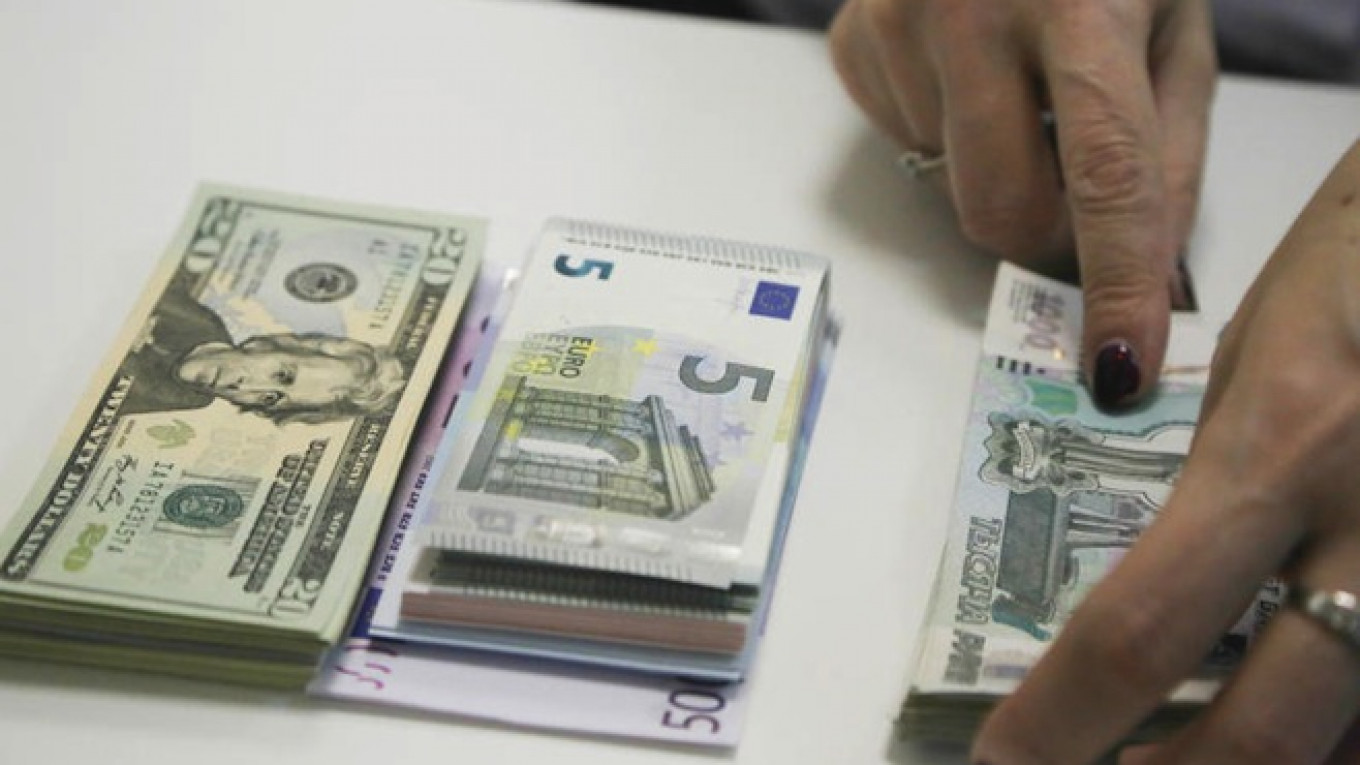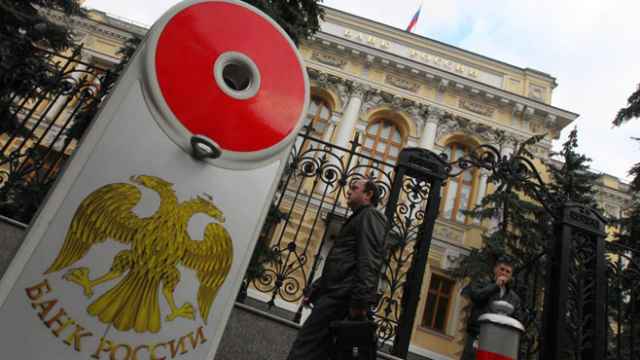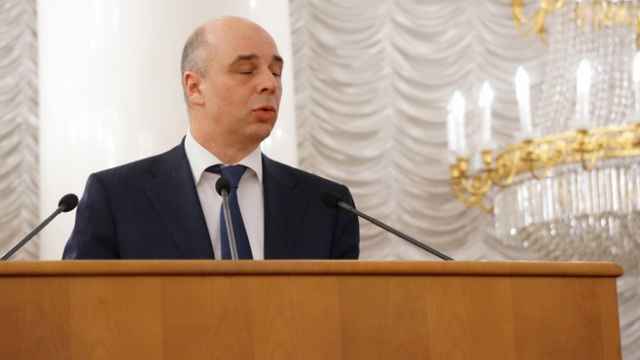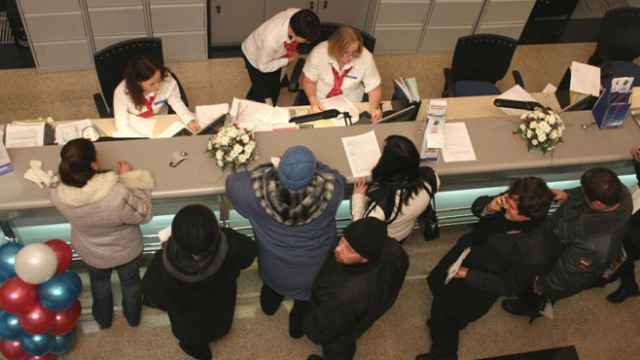The ruble weakened on Friday to a fresh historic low as the Central Bank said its market interventions to slow the currency's fall this month had climbed above $10 billion and former Finance Minister Alexei Kudrin warned against fixing the exchange rate to defuse the crisis.
Shortly after 11 a.m. the Russian currency devalued to the record level of 46.29 rubles against the euro-dollar basket, the benchmark used by the Central Bank.
During morning trading in Moscow, the ruble also passed the 41 per U.S. dollar mark for the third time this week, and touched a record low of 52.59 against the euro.
The ruble has weakened by almost 20 percent this year against the euro-dollar basket in the face of Western sanctions against Moscow over the crisis in Ukraine and a sliding global oil price.
Falls have intensified in recent days as the price of Brent crude dropped to four-year lows, although oil pared recent declines Thursday. This, together with an approaching end-of-the-month tax deadline that has increased demand for rubles, helped the currency recover slightly to 45.74 against the basket by 9 p.m.
Interventions
The Central Bank said Friday that it spent 72.43 rubles ($1.8 billion) defending the ruble on Wednesday, slightly less than the $2.3 billion it burned through the day before.
Russia has now spent more than $50 billion this year to curb the ruble's decline, and over $10 billion just this month.
Current Central Bank policy mandates that interventions take place when the ruble passes the limits of a prescribed trading corridor, the upper boundary of which it raises by 5 kopeks every time it spends more than $350 million attempting to prop up the ruble's value on the markets.
The corridor was shifted by 30 kopeks Thursday, the Central Bank said Friday, indicating the regulator spent about $2 billion that day. The Central Bank releases data on the exact amount of foreign reserves spent on market intervention with a two day time lag.
As the value of the ruble has plummeted, voices in favor of radical action to clamp controls on the currency's movement have grown louder. This week, President Vladimir Putin's economic adviser, Sergei Glazyev, said it was time to decouple the ruble from the market.
But former Finance Minister Alexei Kudrin warned on Friday against imposing fixed exchange rates and attempts to control the value of the ruble.
"An artificially high rate lowers the economy's competitiveness and requires the spending of reserves or raising currency credit to provide support," Kudrin wrote in a column published in the Kommersant newspaper. "But then you are forced to let the exchange rate go, and the debts remain: this was the policy of the currency corridor before the 1998 crisis in Russia and the policy of Belarus in 2011."
Belarus in 2011 and Russia in 1998 both ceased defending their currencies after burning through billions of dollars of foreign reserves, triggering painful devaluations.
Contact the author at [email protected]
A Message from The Moscow Times:
Dear readers,
We are facing unprecedented challenges. Russia's Prosecutor General's Office has designated The Moscow Times as an "undesirable" organization, criminalizing our work and putting our staff at risk of prosecution. This follows our earlier unjust labeling as a "foreign agent."
These actions are direct attempts to silence independent journalism in Russia. The authorities claim our work "discredits the decisions of the Russian leadership." We see things differently: we strive to provide accurate, unbiased reporting on Russia.
We, the journalists of The Moscow Times, refuse to be silenced. But to continue our work, we need your help.
Your support, no matter how small, makes a world of difference. If you can, please support us monthly starting from just $2. It's quick to set up, and every contribution makes a significant impact.
By supporting The Moscow Times, you're defending open, independent journalism in the face of repression. Thank you for standing with us.
Remind me later.







